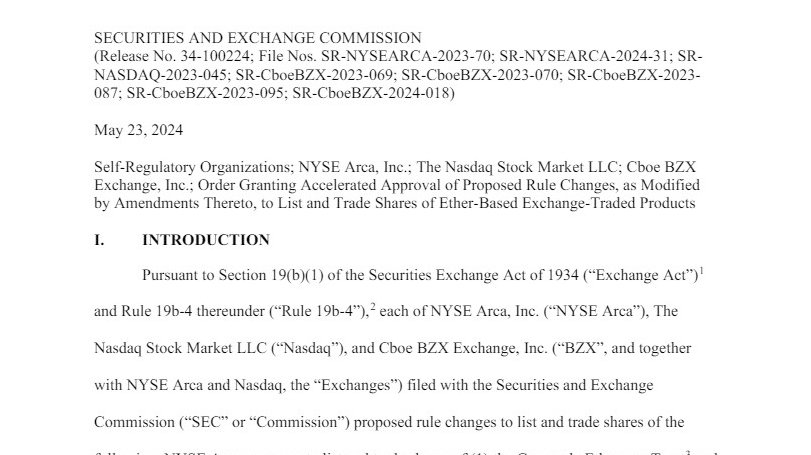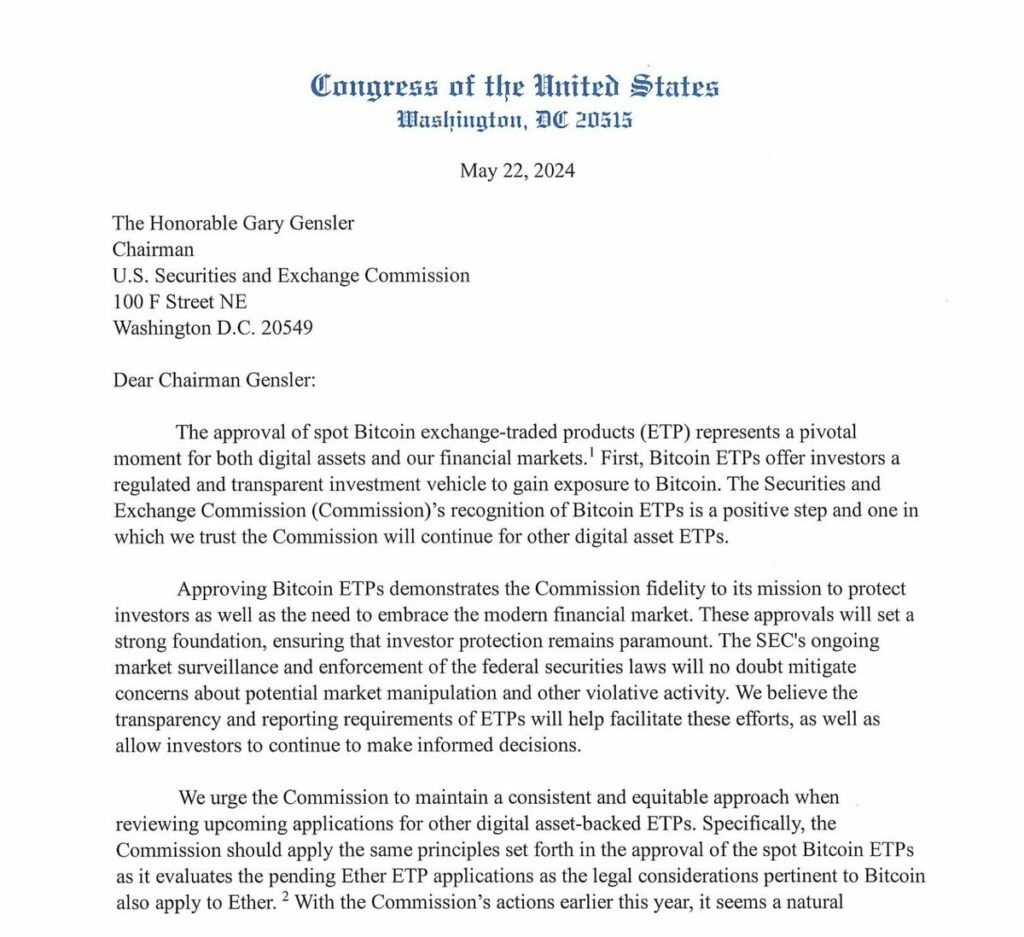The US SEC recently approved eight Ethereum exchange-traded funds (ETFs), following its earlier approval of spot Bitcoin ETFs.
Through an omnibus order, the Securities and Exchange Commission (SEC) of the United States of America has given its approval to eight different Ethereum exchange-traded funds (ETFs) that are multiple-spot.
The recent licensing of spot Bitcoin exchange-traded funds (ETFs) in January is a favorable move for investment products in the digital assets area in the United States. This approval follows approval of spot Bitcoin ETFs.
Spot Ethereum ETFs Approval Process By US SEC
US SEC has authorized the 19b-4 files submitted by VanEck, BlackRock, Fidelity, Grayscale, Franklin Templeton, ARK 21Shares, Invesco Galaxy, and Bitwise. US SEC made a U-turn with regard to Ethereum exchange-traded funds (ETFs) when it awarded these permits on May 23, 2024.
The US SEC slowness in engaging with issuers, which raised concerns about the plan’s approval in the first place was a major factor contributing to the surprise nature of this judgment.
However, the list of authorized companies did not include Hashdex, whose application was due on May 30th. The CBOE, the NYSE ARCA, and the NASDAQ are the three national exchanges that are going to house these exchange-traded funds (ETFs), which will lead to an increase in the number of investors who have access to Ethereum funds.

Despite the approval of the 19b-4 forms, trading operations will not commence until issuers receive approval for their S-1 registration statements. James Seyffart of Bloomberg reports that fast-forwarding the procedure could take a few weeks to complete, despite instances where clearances have taken over three months to complete.
House Lawmakers Push For Ethereum ETF
Political pressure may have contributed to the approval of these Ethereum exchange-traded funds (ETFs), given that many individuals did not anticipate their approval. House members, including Majority Whip Tom Emmer and New Jersey Democrat Josh Gottheimer, had written a letter earlier in the day requesting that the Securities and Exchange Commission (SEC) give its approval to exchange-traded funds (ETFs).

They made the point that such a product would be more in line with the rules that the SEC has been applying since it accepted the approval of spot Bitcoin exchange-traded funds earlier this year. We consider this political pressure as a potential explanation for the US SEC’s shift in stance.
This represents a total departure from the agency’s previous position, which was to engage with issuers and was initiated earlier this week. Insiders from the SEC have expressed that the agency’s speed in granting this approval surprised several departments.
What are the Next Steps
However, according to market experts like Eric Balchunas of Bloomberg, the outcome of Ethereum exchange-traded funds (ETFs) can be different from that of Bitcoin ETFs.
He predicts that Ethereum exchange-traded funds (ETFs) could generate between 10 and 15 percent of the anticipated 5 to 8 billion dollars in revenue from bitcoin ETFs in the first few years.
Despite the fact that this prediction is not as ambitious as the one for Bitcoin exchange-traded funds (ETFs), it is nonetheless considered substantial for a new financial product.
At the same time, QCP Capital issued an optimistic projection on the value of Ethereum following the ETF’s approval. They anticipated that Ethereum’s value would increase to more than six thousand dollars.
The possibility of receiving money from institutions and expanding market access forms the foundation of these optimistic expectations. As a result of the approval of the 19b-4 filings, issuers are currently concentrating their efforts on getting approval for their S-1 registration statements.
In order for the exchange-traded funds (ETFs) to start trading, this step is absolutely necessary. The Securities and Exchange Commission (SEC) has already initiated discussions with issuers regarding their S-1 forms, but they have not yet officially set the approval deadline.












